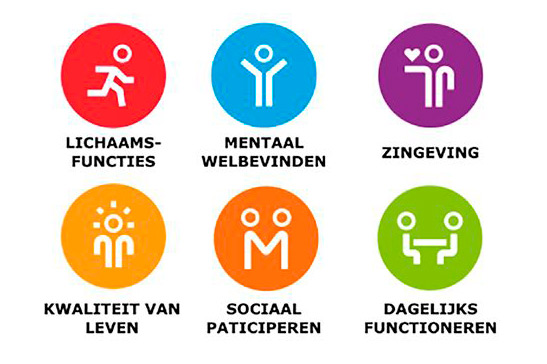Fighting or suppressing symptoms can get you results quite quickly.
Only, if you stop taking medication for symptom relief, everything you were suffering from often comes back quickly.
Rather, I focus on how to look at the totality of complaints and then, what should be done to ensure that the complaints disappear and, if possible, are no longer an issue for a very long time
In the end, it saves time, finances and effort. And increases your quality of life.
I only do symptom control, or "medical shift science" when it is temporarily in your best interest.
Counselling takes as long as you find it necessary.
In terms of vision, the 'Positive Health' concept has quite a bit of overlap with Functional Medicine and is a summation of one's physical conditions, one's life story, life pattern, living environment, work environment and conditions, dietary habits, mental attitude, as well as one's coping mechanisms (how one deals with challenges and setbacks).
On top of that, the effect of diseases already gone through, surgery, chemo- and radiotherapy, as well as the use of pharmaceutical drugs.
Health is not so much:
What more and more people are noticing is that our healthcare system focuses a lot on immediate results. This makes sense, because in acute situations you want to see results quickly. However, in chronic diseases, our healthcare system is less sure what to do. There is some focus on prevention, but mostly it is secondary prevention. This means that measures are taken in people who have already been sick, to prevent them from getting sick again.
The central government talks about this in their own reports:
Looking from "Positive Health" and Functional Medicine can make the analysis more complete and increase the likelihood of increased quality of life.
Within the practice, there is always a focus on primary prevention. Part of this includes advising with regard to Nutrition, Lifestyle and Rhythm.

